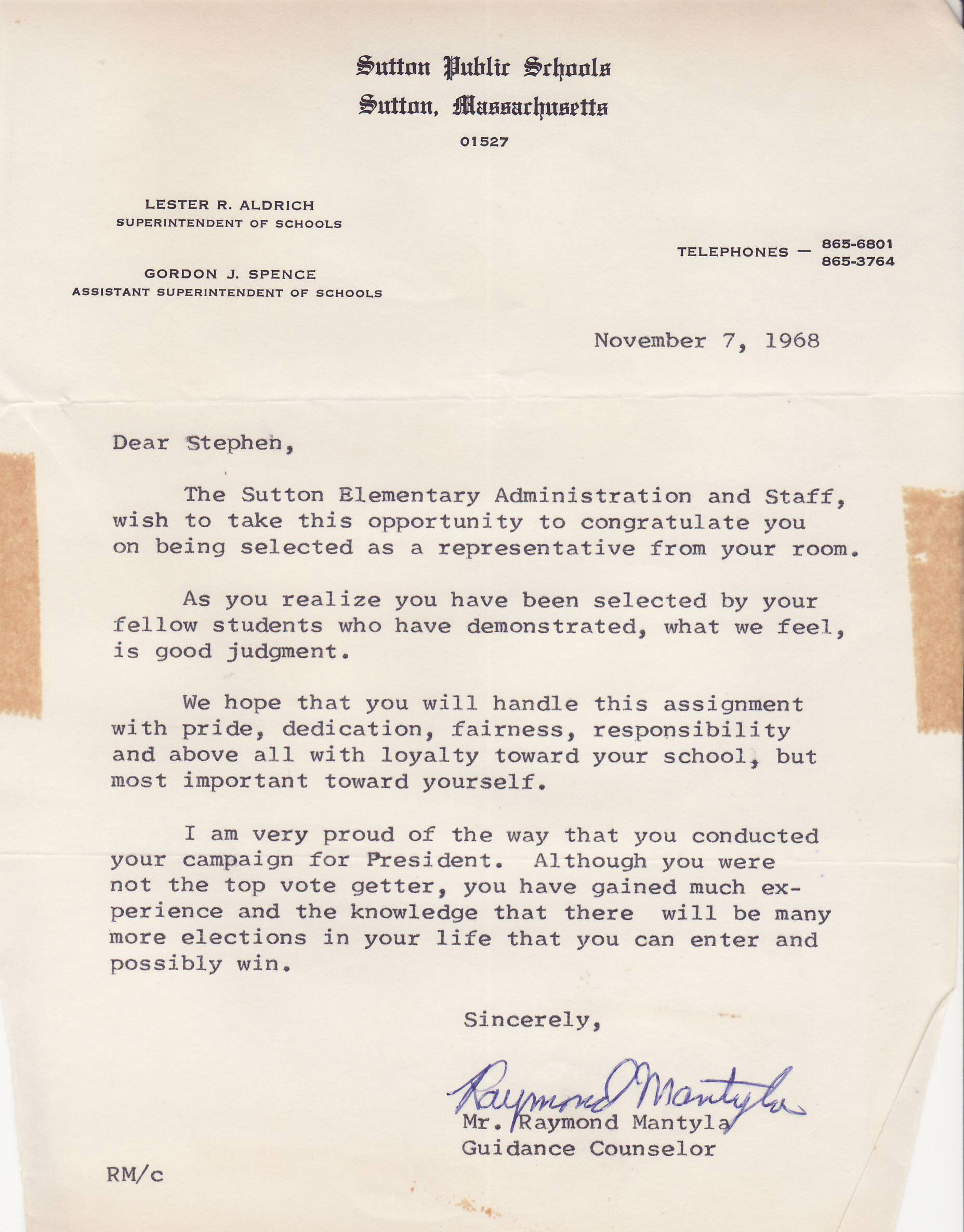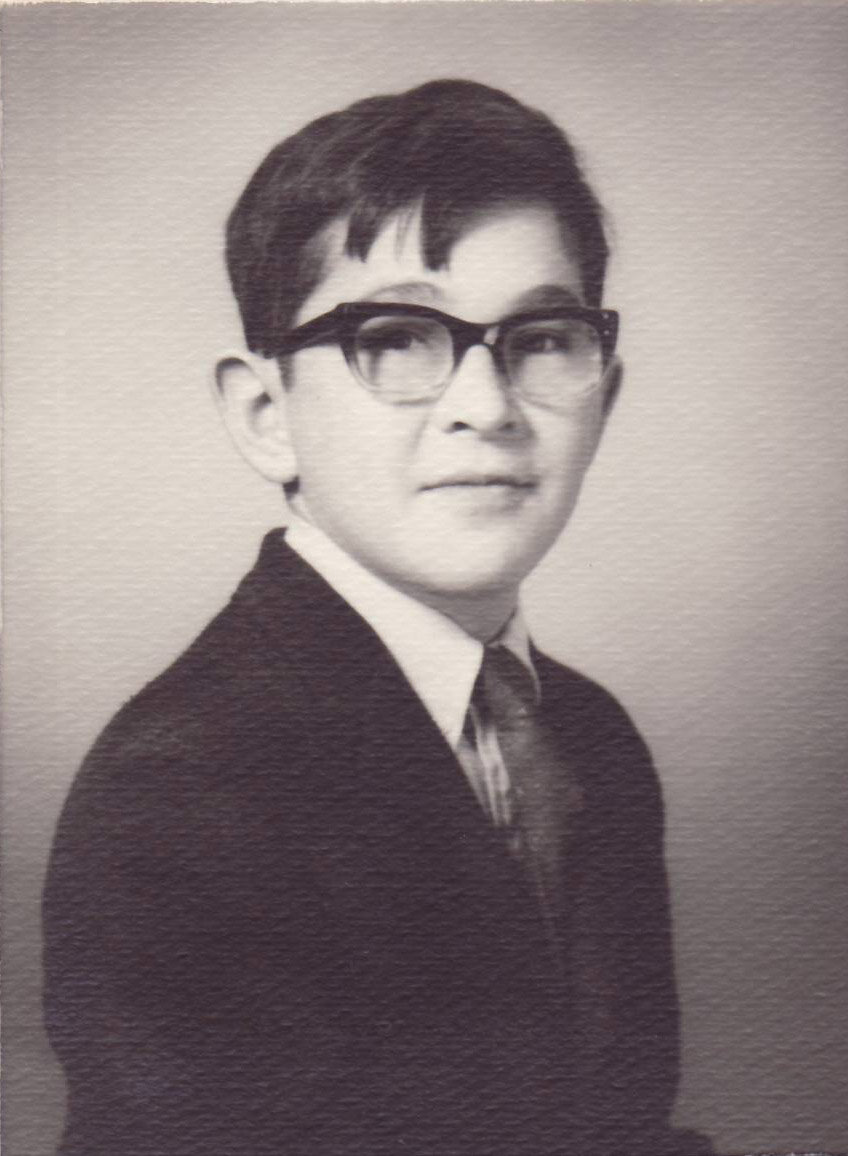Originally Published January 6, 2016 by Steve LeClaire
As we’ve turned the page on 2015 and entered the craziness of the election year of 2016, my mind goes back to 1968 and when I first became aware of politics and what elections were all about.
1968 was one crazy year. I was only nine years old, but I became far more aware of the larger world around me during my tenure as a fourth grader that year. Certainly I was growing up, but world events were crowding in on us. A lot happened that year. In January, the Viet Cong launched the Tet offensive in Vietnam. Nixon entered the race for president in February. In March, Bobby Kennedy followed suit. In April, Martin Luther King was shot. In June, Andy Worhol was shot. Bobby Kennedy was assassinated. I’ll never forget those ghastly black and white images in Time magazine.
Good stuff happened too. 1968 was the “Summer of Love”. Apollo Seven was launched, followed by Eight in December. The Beatles released The White Album, on the heels of Sgt Pepper the year before. Girls went to San Fransisco with flowers in their hair. Heady times. In our insular world in Sutton, the presidential election was big news. Probably following their parent’s ideology, many kids were for Richard Nixon. Heated discussions broke out on the playground as to who we would vote for if we could.
The Sutton Elementary school decided to make the elections of 1968 a teaching event. The administration at school planned that they would give us a lesson in government, and hold student council elections modeled after the national election procedures. Each class would nominate candidates who would be allowed to campaign and run for office. Somehow, someone nominated me, and I hesitantly began my first campaign for office.
Each of the students running gathered all his or her friends into their own campaign headquarters and made posters. We were allowed to hang them up in the classrooms and hallways. The clutter spilled into the cafeteria. The political feeding frenzy and back stabbing began as each candidate attempted to sway their classmates to their camp. The school began to look like a department store/garage sale/carnival, with huge banners and flags stuck up everywhere. Balloons and streamers. The quest for power had us little candidates salivating. Friendships were divided as the political camps were set up by popularity. Bribery on the playground was rampant, as candidates traded lunch snacks for potential votes. The administration intervened in a feeble attempt at damage control, and told us that only two posters would be allowed per candidate, and that after recess that day we would all do our part in tidying up the school. We all ran through the halls at recess and gleefully ripped down each other’s best posters, destroying them. I watched, crushed as someone from the ‘enemy camp’ tore down my biggest poster within seconds. I’d worked on it all week at home with my grandmother. It was chaos, and we hadn’t even had ‘the primaries’.
Once the rules of campaign issues were straightened out, we had a big political rally in the cafeteria. Reporters from the Telegram and Gazette were there. The event was recorded for posterity on the school’s black and white Betamax TV camera. Each candidate was allowed to speak in front of the entire student body and state his platform and pledge his goals. I’m sure my grandmother coached me and probably “ghost wrote” my speech, because I spoke of honesty, integrity of office, and my pledge to do right, and try my best to get things done. It proved to be the wrong tack given my audience. Some of the other kids made some pretty amazing campaign “pledges”. Someone suggested a go cart track built around the school along with free hot dogs at a snack stand. One girl said she would build a beauty parlor in the Nurse’s office. The roar and applause that greeted these two candidates was deafening.
Third grader Donald Eaton spoke, “Fellow students: Every day when we come to school there is a strict rule of line up, silence, and order. If I’m elected, at least one day a week, we’ll have no line-up, no silence and no order! Second, I understand certain teachers inspect their classes for clean fingernails, clean ears and handkerchiefs. I say, lets inspect the teachers for the same! Third: I’ll tell the cooks to serve grinders every week, ice cream every dessert, and to carry our trays to our tables. Last, We can’t forget (Superintendent ) Mr. Spence. When we are sent to his office, it’s a rather long and frightful walk. I say, have escalators to take us there. If I’m elected for vice president, I promise to fulfill these duties!” T&G reporter and Sutton resident Alice Anderson wrote the following:
“Reid Kneeland, candidate for fourth grade president floored the delegation. Bespectacled, studious-looking and impressively dressed in his cub scout uniform, Reid addressed the crowd: “Ladies and gentlemen. . . Sure I’d love to see a swimming pool in the multi- purpose room and a gas cart track around the school building. Maybe even a beauty shop in the library for the girls. But are these reasonable requests? Oh no! You can bet our town fathers would think these requests to be ridiculous! But, I will repeat –and I will repeat again and again – I will work as hard as I possibly can to carry out your wishes for making our school a better place for all of us! Remember, Ask not what your school can do for you, but what you can do for your school.”
As I recall, Reid did win the election for class president. He was a popular kid and smart.
My ‘honesty and integrity’ speech fell pretty flat to a smattering of polite applause compared to some of the grand illusions of other students. I didn’t win, but waged a good campaign.
We heard through the parent grapevine that the whole process was deemed a fiasco by the administration, and they vowed not to try it again. I remember there were a few quiet student council meetings to appease the elected, but the teachers didn’t really let them do anything at all. The whole process was dropped. The administration saw itself losing control, and of course they couldn’t have that. It was the age of ‘Question authority’, and the beginnings of ‘tune in, turn on and drop out’. Our little elementary school election was nothing compared to the High School’s dress code protest and student walk out a few years later. That got little Sutton live television coverage!
Over at the high school, the students staged a walkout one afternoon, protesting the school dress code. Both boys and girls showed up in bell bottom blue jeans, flannel shirts, tie dyed T-shirts, work boots and the pre-requisite army fatigue jacket. None of this was allowable under the current dress code. Television news crews from Boston showed up, and the administration would not comment. Boy students wore their hair long over their collars, and girls decorated themselves with love beads and peace signs. They all sat outside and refused to go back to class, even under the threat of suspension. The administration finally relented, and agreed to an overhaul of the dress codes. We thought that the older kids were so cool for their defiance of the system. It was a really big deal in Sutton for quite a while, that we had made the news. The rains of national social unrest and protest were drizzling down to our level, and the waves had rippled out to little Sutton.
We became more and more conscious of the war in Vietnam. Dave Leno was in my church Sunday School fourth grade class and he told us about his older brother Barry who was “over there fighting the war”. Every Sunday morning before class started, we prayed for “David’s brother Barry who is fighting in Vietnam”. David explained to us that Barry drove a tank. He showed us a black and white photo of Barry aboard a tank, which was half hidden behind a huge pile of sandbags. He was shirtless, and his barrel chest and muscles rippled. He was deep in the jungle, but smiled and mugged for the camera. We watched the television announcer standing in front of the big map pointing to Phnom Pen ant the Ia Drang Valley. Names of faraway places like Cambodia and the Mekong Delta were heard frequently. Suddenly, the elections and politics seemed very small and unimportant. David Leno just wanted his big brother home. It didn’t matter if the Republicans or the Democrats could do that for the Leno’s. Nixon or Humphrey. It didn’t matter. Mom and Dad never discussed the war in Vietnam that I recall. They never told us anything about it. Maybe they thought that we were too young, but the images from the surrounding world left lasting impressions. I can still hear the thump-thump-thump of helicopter blades in the background of the live news reports on TV every night. That and the screaming electric guitars of Jimmi Hendrix and the Jefferson Airplane became the soundtrack of the times.
We all know how the election of 1968 turned out and what happened after. But in our little world, the Beatles earliest recordings now seemed tame in comparison to what they – and the rest of the world were releasing.

